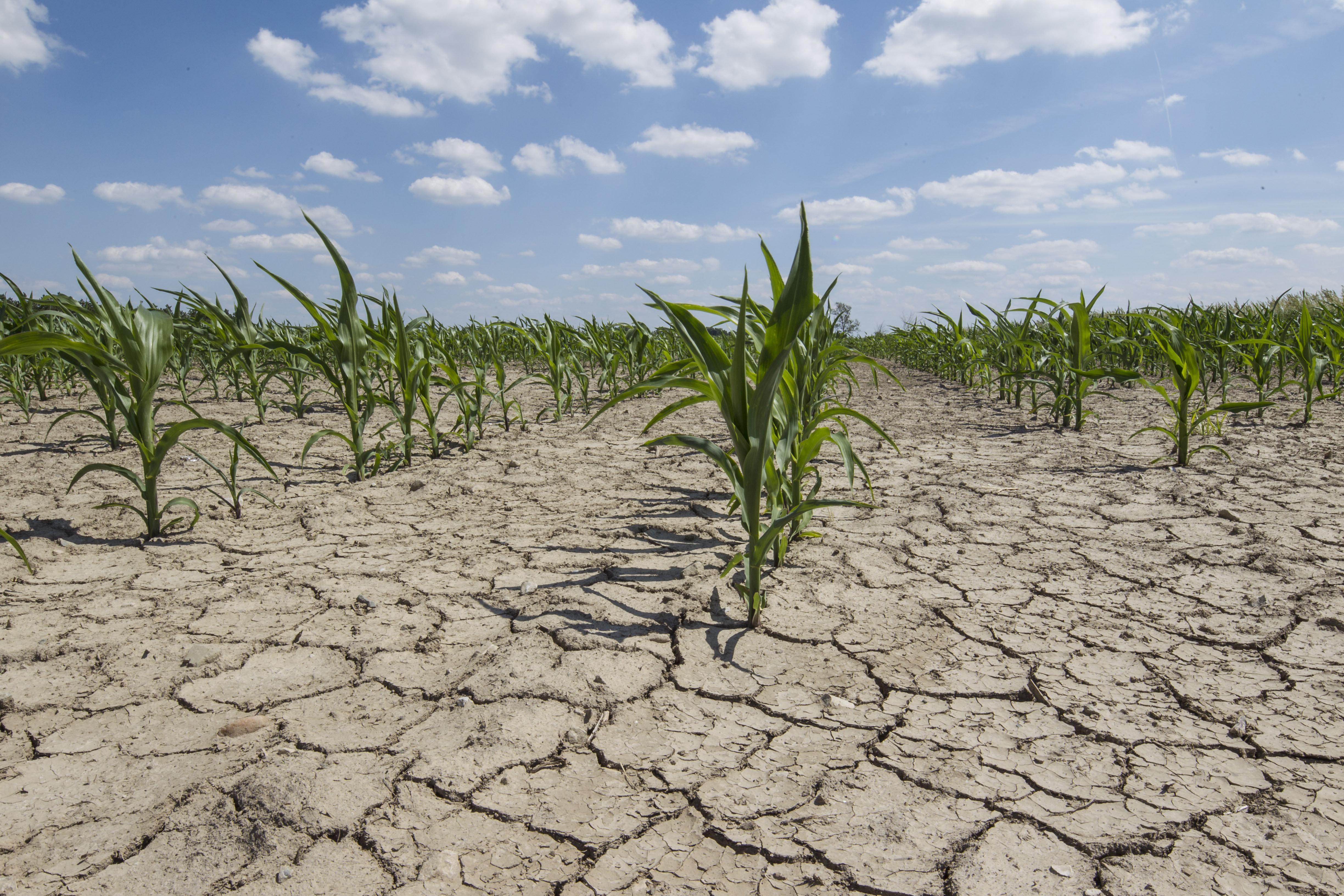New Agricultural Climate Resiliency Program funds four projects
Each project will be supported at roughly $1.25 million over three years.
 EAST LANSING, Mich. — Four research and outreach projects have been funded through the new Agricultural Climate Resiliency Program, a partnership among Michigan State University, the Michigan Plant Coalition, and the Michigan Department of Agriculture and Rural Development.
EAST LANSING, Mich. — Four research and outreach projects have been funded through the new Agricultural Climate Resiliency Program, a partnership among Michigan State University, the Michigan Plant Coalition, and the Michigan Department of Agriculture and Rural Development.
The program, which began in 2024 and is administered by MSU AgBioResearch and MSU Extension, was created to address long-term climate- and water-related challenges in plant agriculture.
Overall, research will examine topics such as plant and soil health, carbon sequestration, efficient use of water and protection of water resources. Results will be shared with growers across the state through MSU Extension.
In 2024, the State of Michigan provided a one-time $5 million allocation for a competitive grants program, which supports each of the four new projects at roughly $1.25 million over three years.
“We’re thrilled to announce the first set of projects for this essential program,” said George Smith, director of MSU AgBioResearch. “The review panel received an impressive group of proposals, and the initial research through the Agricultural Climate Resiliency Program will set the tone for the initiative. We believe these four projects represent a diverse set of priorities that are critical to climate resiliency and the long-term viability of Michigan agriculture.”
The four funded projects will focus on:
- Increasing resiliency of tree fruit production to climate change through a holistic approach to water, nutrient and soil management. Researchers will work to develop a climate-smart technology that can optimize irrigation and fertilizer management to make timely decisions, as well as maximize water and fertilizer use efficiency. The principal investigator is Younsuk Dong, an assistant professor in the Department of Biosystems and Agricultural Engineering.
- Creating a decision-support system that promotes sustainable farming by providing insights into climate-smart approaches. The goal of the project is to develop a statewide tool that integrates socioeconomic analysis, groundwater flow, nutrient and pollutant fate and transport modeling, and field observations. The principal investigator is Pouyan Nejadhashemi, an MSU Foundation Professor in the departments of Biosystems and Agricultural Engineering, and Plant, Soil and Microbial Sciences. He is also a director of the Center for Intelligent Water Resources Engineering.
-
Providing Michigan field crop farmers the information they need to build climate-resilient cropping systems. Using an innovative and multidisciplinary approach that engages field crop farmers as partners, the research team will assess factors influencing climate adaptation and mitigation of major commodity crops in Michigan. Researchers will explore how regenerative agriculture practices enhance soil health and yield stability, evaluate the relationship between soil health and greenhouse gas emissions, and identify factors that influence farmer adoption of climate-smart practices. The principal investigator is Christine Sprunger, an assistant professor in the Department of Plant, Soil and Microbial Sciences based at the W. K. Kellogg Biological Station. Sprunger is also a faculty member in the MSU Plant Resilience Institute.
- Addressing specific pest management concerns regarding the effects of erratic weather on early season management, bloom prediction and late-season management in apple, blueberry, cherry and grape production systems. The goals of the project are to develop resilient disease management strategies, adaptive insect pest control measures, integrated bloom prediction models and effective outreach strategies for stakeholder engagement. The principal investigator is Julianna Wilson, an assistant professor in the Department of Entomology.
“One of the foundational aspects of this program is that it’s grounded in on-farm research and outreach,” said Quentin Tyler, director of MSU Extension. “Through our strong partnerships with Michigan growers and the agriculture industries, these projects will allow us to produce and deliver highly relevant, usable recommendations.”
In addition to the competitive grants, the Agricultural Climate Resiliency Program is also conducting a faculty and Extension educator cluster hire to expand MSU expertise on topics such as the economic impact of climate change on Michigan farms, water quality with an emphasis on nutrient flow and retention, and modeling climate-smart agriculture practices.
A recurring $1 million investment from the State of Michigan is supporting the positions, as well as $1.5 million for startup packages from the MSU Office of Research and Innovation.
For more information on the program, visit canr.msu.edu/climate-resiliency.
Michigan State University AgBioResearch scientists discover dynamic solutions for food systems and the environment. More than 300 MSU faculty conduct leading-edge research on a variety of topics, from health and climate to agriculture and natural resources. Originally formed in 1888 as the Michigan Agricultural Experiment Station, MSU AgBioResearch oversees numerous on-campus research facilities, as well as 15 outlying centers throughout Michigan. To learn more, visit agbioresearch.msu.edu.



 Print
Print Email
Email




